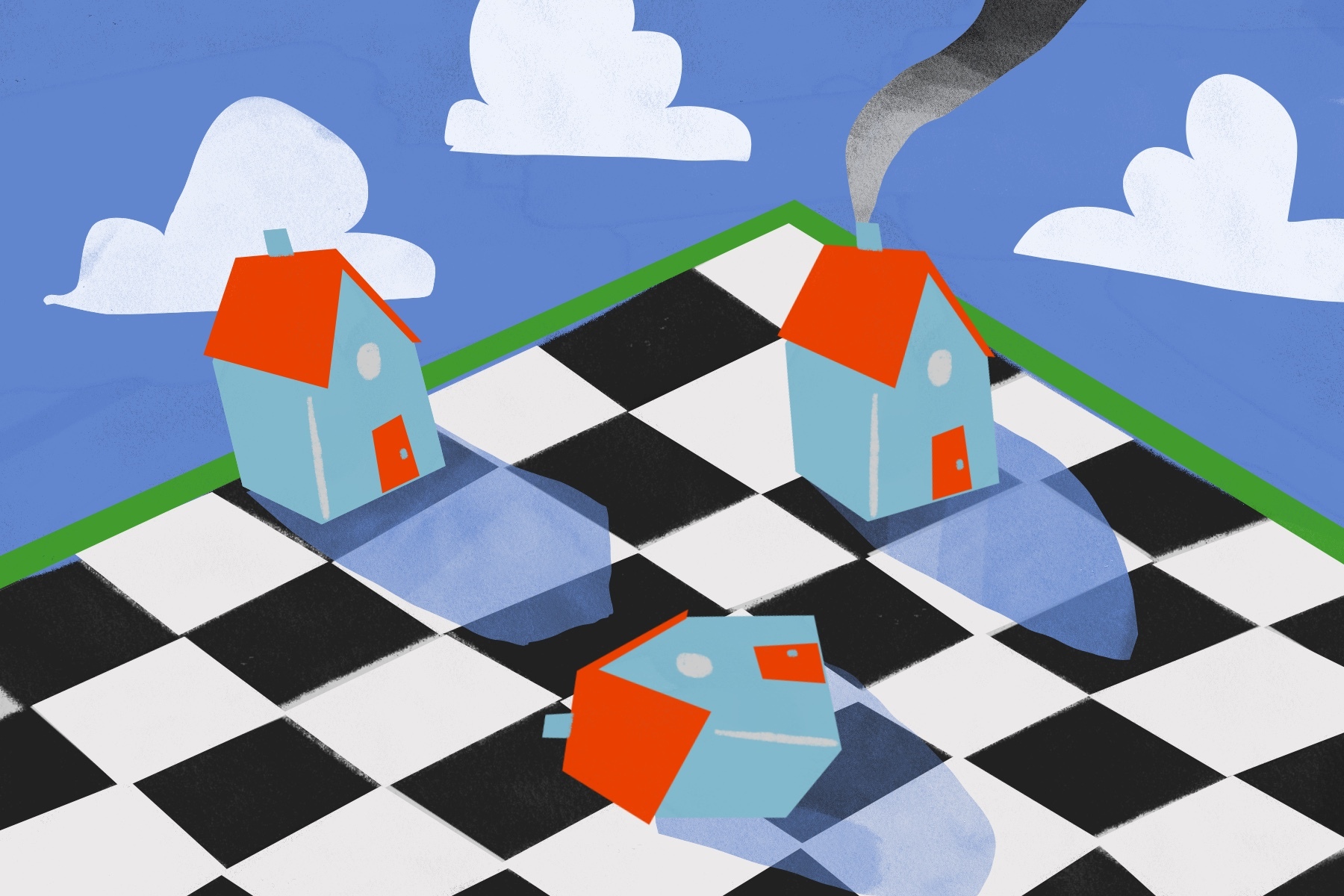While sitting at the dinner table with family, your uncle wipes the corners of his mouth and tells the tale of his frustrating experience while trying to buy a home. The rest of the family immediately explodes into a discussion regarding the current housing market. You sit quietly. Perhaps you heard that the housing market is in poor condition. But when you flip through your brain’s Rolodex of information to find something interesting to add to the dinner table conversation, you come up empty. Your high school economics class was far too long ago.
In everyday language, the following paragraphs will cover the basic, preliminary details that you need to know before having an intellectual conversation about the housing market.
Foundations of Housing Market Understanding
Welcome back to Econ 101. Class is in session, and the first thing one must know is that when the demand for a good or service is high, its price rises and vice versa — prices drop if demand for that good or service declines. When people lose their jobs or struggle financially because of the economy, they are more likely to miss mortgage payments, meaning the bank can foreclose on their homes. Vacant houses result in a drop in their value, as well as the lowering of prices for residential housing overall.
This, however, is not the case for the 2021 crowd of homebuyers.
The Towering Housing Market in 2021
Sip your coffee, rub your eyes and click your pen because the 2021 housing market warrants attentive study. The pandemic sent people home in 2020, causing many to rethink their living arrangements. Some purchased houses with more space for a home office, others looked for houses with a bigger yard and more still simply bought a house so they could take advantage of last year’s low-interest rates.
“Last fall having to stay home so much, that really made me decide that it is time to buy a house,” Kelly Robinson told CNN Business Insider in July.
Last year’s surge of property purchases resulted in a 24.8% increase in the cost of homes across the U.S. If people will pay it, the builders will charge it. Although the frenzy for homes continued throughout 2021, lumber and labor shortages decreased the number of new homes available. As a result, about 50% of homes were sold above their original asking price this year.
Individuals Impacted by the Housing Market
Homeowners aren’t the only people impacted by astronomical housing costs — but they are certainly at the forefront of those getting whacked in the head with the economic baseball bat. People who bought homes in 2020 and are paying off their loans can almost hear the whistle of their property value dropping rapidly, to the point where it is now lower than what they originally paid.
Beyond only American homeowners, the entire financial state of the country is often affected by the rises and falls of the housing market. During the Great Recession, many could not pay their mortgages, which hurt the bank. That meant that the bank struggled to grant loans to anyone else.
While all industries can be indirectly impacted by real estate, specific locations can also feel the brunt of a hot housing market. The cities getting hit the hardest by the current property value are Boise, Idaho, Austin, Texas and Ogden, Utah. At the moment, property in Boise is selling at 80.64% over its average value, making it the No. 1 most overvalued city in which to buy a home in the U.S.
News Coverage
Extra! Extra! Read all about it!
When it comes to the housing market, COVID-19 set a rush of waves into motion. 2020 was a great year for buyers because interest rates were low. But, as it always does, the economic pendulum theatrically swung the other way. Now homes are in high demand but low in stock.
These constant updates and dramatic changes fed journalists with the fiery content that they love to publish. Apocalyptic headlines that tell readers how the U.S. is headed for “another great recession,” a “crash” or an “economic shock” certainly grab clicks. But are they accurate?
The Potential of Another Great Recession
Despite the drastically changing housing costs over the course of the pandemic, some analysts have hope that the Great Recession of the late 2000s will not repeat itself in 2021. Last year, 7.2 million homeowners participated in a mortgage forbearance program, which allowed many to defer mortgage payments for an extended amount of time. In just one year, the number of people involved in such a program decreased to 1.7 million. Thus far, the U.S. economy has recovered 10 times faster than it did after the Great Recession.
While not all discouraging article titles are clickbait, researchers see a reason to hope that the country will quickly recover from the economic harm caused by the housing market.
Rebuilding a Healthy Housing Market
While there are no easy fixes for the current lofty property costs and fluctuating housing market, the Biden administration did release a plan last week with the goal of getting the economy back on track.
The announcement on the White House’s website states that the government will be involved in the sale of homes to prioritize lower and middle-class individuals, as well as nonprofits. The president’s reasoning for this decision is because one in six homes in the U.S. are owned by corporations or investors. He believes that establishing more affordable housing will help solve the current property-cost rollercoaster.
These practices were first announced during Biden’s campaign and were officially published on the White House’s page during the last week of August. This supplement to the “Build Back Better Agenda” is expected to be set in motion immediately.
















